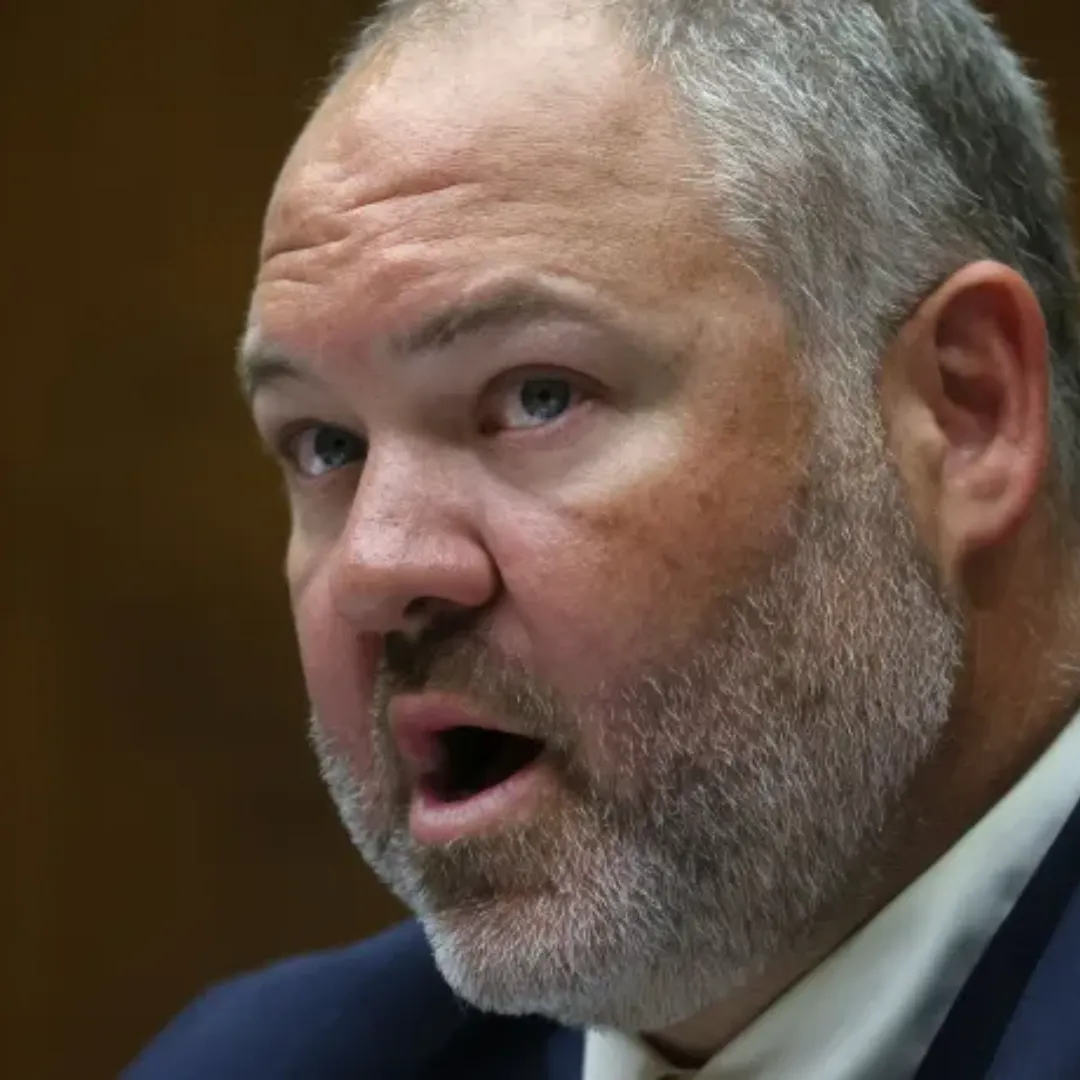
Veteran Democratic strategist James Carville delivered a sharp critique this week of prominent progressive leaders within the Democratic Party, questioning their approach, their influence on the broader electorate, and their ability to win against Republicans in critical elections.
Speaking on a national television program, Carville suggested that progressives like Senator Bernie Sanders and Representative Alexandria Ocasio-Cortez are more focused on internal party battles than on defeating the political opposition.
Appearing on the NewsNation program hosted by Chris Cuomo, Carville expressed frustration with the progressive wing’s ongoing calls for structural transformation within the Democratic Party.
He accused Sanders, Ocasio-Cortez, and others of emphasizing ideological purity over practical electoral success and of directing their energy toward primary fights against fellow Democrats instead of taking on Republican candidates.
"Bernie has run for president twice, he’s lost twice," Carville said. "AOC and her kind … they want to run against other Democrats. They don’t want to run against Republicans. When you beat a Republican, come back and see me and I’ll be impressed."
Carville’s comments come at a time when the Democratic Party remains divided over its ideological direction. While the centrist and establishment factions continue to support a more moderate policy platform aimed at winning swing voters, progressives have called for bold reforms on healthcare, economic inequality, climate change, and campaign finance.
This ongoing friction between the two wings of the party has become more visible as high-profile progressives take to the national stage with ambitious proposals and rally large crowds across the country.
Ocasio-Cortez has been one of the most prominent progressive voices on Capitol Hill since her election in 2018. In recent weeks, she has drawn thousands to town halls and rallies held under the banner of a national “Fighting Oligarchy” tour.
.jpg)
The campaign, which she has embarked on alongside Senator Sanders, has been interpreted by some as a testing ground for a future presidential bid or other national leadership ambitions.
Despite the attention she has garnered, Carville questioned whether popularity within the party base would translate into broad electoral appeal.
"Democrats are not the problem right now," he said, noting that the party’s focus should be on beating Republicans in general elections rather than deepening internal divisions. "The problem is the Republican Party and their radicalization. We should be pointing all our firepower at them, not at each other."
While Carville acknowledged that figures like Sanders and Ocasio-Cortez are able to mobilize passionate supporters and attract national attention, he argued that this has not translated into political victories where it matters most.
"Democratic voters are trying to tell him something," Carville said of Sanders. "He ran twice for president, and the voters chose someone else both times. That message should not be ignored."
He further suggested that Ocasio-Cortez, who has yet to run a statewide or national campaign, would face similar challenges if she attempted a run beyond her current congressional seat.
Cuomo, who hosted the conversation, responded by pointing out that American politics may benefit from more diversity in party structure and political representation. He expressed openness to the idea of expanding the political field beyond the two-party system.
"I have no problem with more political parties and choices for voters," Cuomo said. "The current system feels like a binary battle to the bottom."

Carville agreed in principle but added that if progressives believe they are no longer aligned with the Democratic Party’s direction, then they should consider forming their own political movement rather than attempting to reshape the party from within.
"Maybe they need to split off from the Democratic Party," he said.
The remarks from Carville are likely to ignite further debate among Democrats as the party prepares for the next cycle of elections. With control of Congress and the White House at stake, party leaders are strategizing how best to appeal to a broad electorate that includes suburban moderates, working-class voters, and younger progressive activists.
Progressive leaders have argued that bold proposals are necessary to energize the Democratic base and draw in non-voters who feel alienated from politics as usual. They point to polling that shows support for Medicare for All, a Green New Deal, and higher taxes on the wealthy as evidence that the American public is ready for significant change.
Sanders and Ocasio-Cortez have also emphasized that corporate influence and lobbying continue to weaken the Democratic Party’s ability to respond to the needs of ordinary Americans. Their platform focuses on confronting concentrated wealth and power, reducing student debt, and reshaping the healthcare system into a publicly funded model.
Supporters of the progressive wing argue that their message resonates with a generation that came of age during the Great Recession, faced stagnant wages, and now struggles with housing costs and climate anxiety. They also point to the success of progressive policies at the state level and the growing number of young, diverse candidates who are winning local and congressional races on these platforms.
Still, centrist figures like Carville remain skeptical. They worry that emphasizing ideological purity could cost Democrats winnable races in swing districts or purple states, where a progressive message may not have the same appeal.
Carville, who served as lead strategist for President Bill Clinton’s successful 1992 campaign, is widely credited with crafting the “It’s the economy, stupid” mantra that helped Democrats recapture the White House after twelve years of Republican control. He has long advocated a pragmatic, data-driven approach to campaigning, emphasizing the importance of moderate voters and broad coalitions.

His criticism of Sanders and Ocasio-Cortez fits within his broader view that the Democratic Party should focus on tangible, winnable policies rather than ideological crusades.
"We win by being smart and practical," he said. "We don't win by turning our backs on the voters we need in order to govern."
The tension between progressives and establishment Democrats is not new, but it has taken on new urgency in the current political environment. With rising threats to democratic norms, mounting economic inequality, and a divided electorate, the Democratic Party must decide how best to define itself going forward.
Some political analysts believe that the divide between the two factions could ultimately strengthen the party, as it allows for a wider range of ideas and fosters debate. Others caution that unresolved infighting could weaken Democratic chances in close races and confuse voters.
The question remains whether the party can bridge its internal divides and present a unified message to the American people. For now, the conversation continues, with voices like Carville’s urging caution and focus, while progressives push for a transformative agenda they believe is necessary for lasting change.

As the midterms approach and the 2028 presidential field begins to take shape, the future of the Democratic Party may hinge on how these competing visions are reconciled. Whether the party continues as a big tent or fractures into distinct ideological groups is a question that will likely define the next era of American politics.



